Contents:
Monday 9th October 2023 - The SAS Charter and SAS as a career choice

SAS doctors and dentists - who are we?
Despite the acronym we are not members of the Special Forces or the Scottish Ambulance Service but Speciality, Specialist, Staff Grade and Associate Specialist doctors and dentists.
Many of us have chosen to be SAS because we are looking for a flexible career with opportunities to improve our work–life balance. Or we are perhaps combining careers with personal commitments, taking a break from a training programme or want to develop a specific area of interest within a speciality. Many experienced International Medical Graduates also choose to work as SAS doctors or dentists.
We are therefore a diverse group with a wide range of backgrounds, skills, experience and motivations for joining the grade. Many SAS doctors/dentists are senior clinicians with significant levels of experience in their speciality. We make an important and valuable contribution to the delivery of patient care across Scotland and to the medical workforce.
There are approximately 1260 SAS doctors in Scotland, working across all specialities. Many have chosen to pursue extended roles in leadership, education and clinical governance in addition to their primary roles in direct clinical care.
There is a SAS Charter 2014 which all Scottish Health Boards are signed up to. This document prepared jointly by the British Medical Association (BMA) Scotland, and Management Steering Group (MSG), which includes both NHS Scotland employers and the Scottish Government Health and Social Care Directorate (SGHSCD), sets out both the rights and responsibilities of SAS and their employers, with a commitment to support and enable SAS to realise their full clinical potential to deliver the best patient care.
The SAS Development Programme was established in 2012 as a result of Scottish Government funding to support the professional development of SAS doctors and dentists working in NHS Scotland. The programme offers information and resources, training events with an annual Scottish SAS conference to support the development of SAS doctors and dentists.
There is also individual SAS Development Programme funding for those who want to develop new skills or services or enhance their role within the clinical team. Applications for funding can consider supporting costs of courses, salary backfill for experiential learning or CESR related training.
The SAS Development Programme is supported by a network of SAS Education Advisers who work in each Health Board across Scotland to support SAS colleagues with their professional development. They also advise and guide applicants through the process of applying to the SAS Development Fund.
Tuesday 10th October - The Specialist grade
There are new Scottish SAS contracts available to SAS grade doctors and dentists, with a revised Specialty Doctor (2022) contract as well as the introduction of a new Specialist (2022) grade. The Associate Specialist grade closed to new entrants in 2008.
Specialist posts will be created by NHS Boards in response to workforce need; these will be advertised for competitive entry through local recruitment processes. The Specialist grade should provide an opportunity for progression for highly experienced Specialty Doctors, helping NHS Scotland to recruit, motivate and retain senior doctors and contribute to the SAS grades being a positive and fulfilling career choice.
The entry criteria for the new Specialist grade are:
There have been a few initial appointments to this new grade in Scotland - we will look forward to seeing more SAS become Specialists in the future, and share their stories!
Wednesday 11th October - SAS in Extended Roles and SAS Development
The SAS Development Programme aims to direct national funding to those SAS doctors and dentists whose clinical teams are seeking to develop new or improved clinical services, or to enhance their role within the team.
While those interested in the CESR/Portfolio pathway can look at our dedicated webpage, we thought we'd provide some examples of the potential to professionally develop within the SAS grade, kindly contributed by two NHS Scotland SAS doctors, Dr Gary Manson and Mr Thisara Weerasuriya.
University Roles
"There are many options available for enthusiastic and experienced SAS seeking university roles. These include clinical skills tuition, OSCE examination and involvement in admissions interviews. Working alongside young, motivated undergraduates can be a refreshing, invigorating change from everyday duties.
Many university roles do not attract remuneration, but for those wishing to secure a substantive post increasing involvement and engagement and applying for honorary status are good ways to develop attractiveness as a candidate and become aware of available opportunities.
My roles are at the University of Glasgow. The university publishes the options which are available for staff looking to broaden their teaching experience. I am involved in the organisation and delivery of the clinical procedural skills syllabus providing on campus training to years 1-3. In addition, I am an undergraduate OSCE examiner and participate in admissions interviews.
I have a half-day, salaried position as a vocational studies tutor, teaching year one students about professionalism, and providing an introduction to communication and clinical examination skills and medical ethics. This syllabus is considered stimulating and enjoyable by students and is an excellent opportunity for tutors to revisit and reflect on their own skills and approach.
I thoroughly enjoy my university roles and would encourage SAS to explore all the opportunities available."
Appraisal
I have been a postgraduate appraiser for 7 years. Being an appraiser has many advantages- it allows you to cultivate relationships with colleagues and gives invaluable insight into the roles and responsibilities of other doctors. Appraisers can choose whether to remain within their own specialty or diversify into other areas of clinical practice. From a personal perspective I find learning about other specialities to be stimulating and interesting.
Appraiser training is offered by NHS Education for Scotland (NES) and there is a good ongoing support network once you start appraising. Generally, SAS should expect to have half a job plan session for 12 annual appraisals.
My role as an appraiser has allowed me to develop my analytical and written communication skills. In addition, my own appraisal experience has become more positive and personal reflection easier as a result.
I appraise both SAS and consultants."
Educational and Clinical Supervisor
I have been a foundation programme educational and clinical supervisor for 5 years. These roles rely on a SAS being recognised as a trainer. The process requires an element of personal reflection and accessing developmental opportunities to demonstrate that you satisfy the various requisite criteria. There is a clearly defined framework to support applicants.
Maintaining recognition of trainer status ensures continue professional development and is an ongoing component of annual appraisal.
Being a SAS clinical and educational supervisor for two junior staff requires half a session per week. There is a requirement to arrange at least three meetings during a four or six month attachment and complete the necessary documentation relating to the trainee’s progress.
The foundation programme is supportive in disseminating information and guidance to ensure that supervisors remain familiar with the assessment and supervision processes. In addition there are a range of educational opportunities to cultivate and maintain skills.
Having the opportunity as a SAS to develop a supportive and pastoral relationship with trainees in a distinctly rewarding experience and one which I would unreservedly recommend."
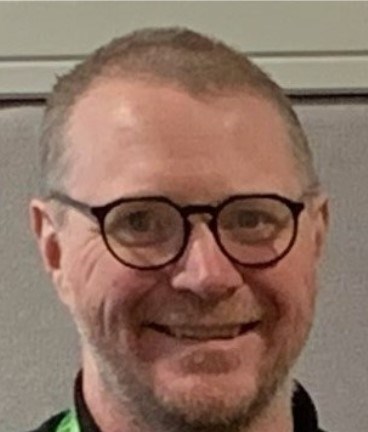 |
Dr Gary Manson, SAS Education Adviser, NHS Greater Glasgow & Clyde Deputy Lead Clinical Procedural Skills, Honorary Clinical Lecturer & Year One Vocational Studies Tutor, University of Glasgow |
Development outwith CESR - one SAS doctor's journey
"I wish to express my gratitude to Linda for inviting me to write this brief paragraph on other roles an SAS doctor could be involved with, outwith the pursuit of CESR. My thoughts were to pen down and share some of my own experiences in roles that I have engaged myself in, beyond my clinical engagements as a specialty doctor attached to Ayrshire and Arran Health Board in trauma and orthopaedics.
My journey in the NHS began in England when I came with the intension of completing my fellowship in-order to satisfy the last requirement to be board certified as a consultant trauma and orthopaedic surgeon in Sri Lanka. Circumstances eventually led to me working in the NHS in England and then moving to Scotland exactly a decade ago in September 2013.
It was challenging enough to establish my own clinical practice let alone find other roles in which I could be engaged in, during the initial period of joining the NHS. However through perseverance and hard work I was able to diversify my roles as an SAS surgeon not very keen on doing down the popular road of CESR.
I had a background of being a senior lecturer in human anatomy in addition to being a surgeon and I wanted to be involved in teaching at a higher level and thus started my journey by engaging in bedside teaching wherever and whenever I had the opportunity to do so. This eventually led to very high positive feedback from students. Gradually word spread and it was not too long before I was asked to be an educational supervisor for medical students. I got invited to teach in university courses and was eventually enlisted as an Honorary Senior Clinical Lecturer with the University of Glasgow. I did not stop there and spent my own funds on reading for an MSc on Medical Education with the University of Glasgow. I had to personally fund this course as the department declined funding the course despite the recommendation of the postgraduate teaching lead of the health board. Having obtained the MSc I was able to register with NES as a trainer. I penned this example from my personal experience to highlight that opportunities will not be offered on a platter, particularly for SAS doctors. However this does not mean that these opportunities do not exist. My message is 'hunt for them and work towards achieving them'.
In a similar manner I have been able to actively engage myself with the Royal College of Physicians and Surgeons of Glasgow having been elected as the member of council for the West of Scotland for all Surgical Specialties and also to become a MRCS MCQ writer and validator.
Within my professional association which is the British Orthopaedic Association, I am actively involved as the Culture and Diversity Champion for the whole of Scotland.
Some of the roles that I was involved in during the past includes being an expert advisor to the college electronic journal of the RCS England, a member of the SAS forum of the RCS England and the member of Scottish Council as the SAS elected representative with the BMA. I have resigned from the roles listed above due to change in work circumstances as a result of service reconfiguration.
Last but not least I am a secondary care appraiser and an appraisal tutor with NES.
As previously mentioned, all these and many other roles are open and available for SAS colleagues. However despite a significant culture change, the tendency is for these roles to be less popularised among the SAS doctors and unless one is proactive and pursue them, these roles remain hidden and will be perceived as distant from the SAS group. I wish you all a rewarding career as an SAS doctor."
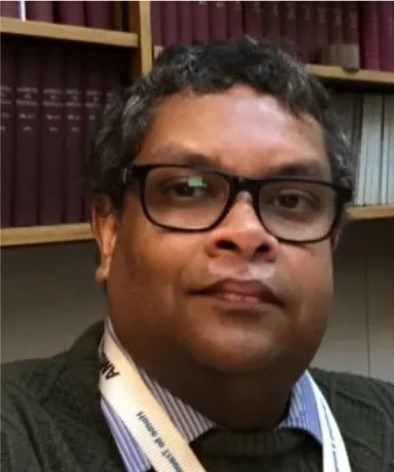 |
Mr Thisara C Weerasuriya, Specialty Doctor, NHS Ayrshire & Arran MBBS(SL), MS(SL), MRCS(Eng), MRCS(Gla), FEBOT(Swiss), MSc(Gla), FRCS(Gla) |
Thursday 12th October 2023 - SAS support & wellbeing
SAS Education Advisers
The SAS Education Adviser network is at the heart of delivering the SAS Development Programme. SAS Education Advisers, themselves experienced SAS doctors and dentists, support the professional development and wellbeing of SAS colleagues in their board, signposting information, resources and providing opportunities to explore career development options, including the CESR / Portfolio pathway.
As well as delivering regular updates, they organise local SAS development events within their boards. They contribute to the organisation and content of Scotland wide SAS events and the wider work of the programme team in developing website resources, training needs surveys and national reports.
SAS Education Advisers engage with a wide range of stakeholders and partners to raise the profile and recognition of the valuable contribution of SAS colleagues both locally and nationally in NHS Scotland. They have been key in identifying and developing necessary supporting resources, and strengthening these links.
They also promote the use of and guide applicants and clinical teams with individual applications to the SAS Development Fund to benefit clinical service delivery and patient care.
Their experience of navigating both personal and professional challenges in career development, combined with their knowledge of available resources makes them uniquely placed to offer guidance and support to SAS colleagues. All value the opportunity to share their knowledge and expertise to enable SAS colleagues to develop in their roles and reach their potential while also influencing wider policy to improve colleagues working lives and wellbeing.
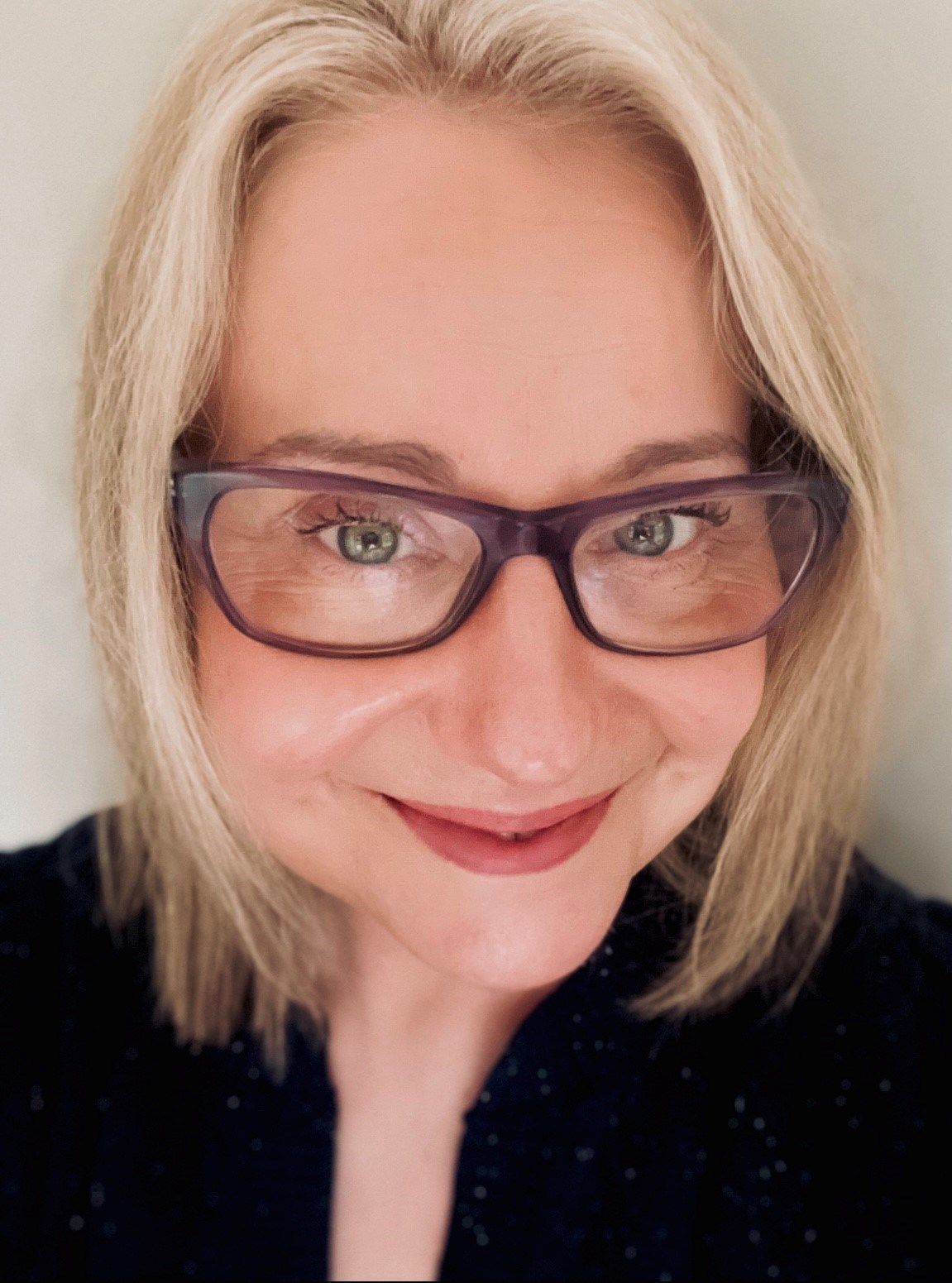 |
Dr Patricia Townsley, SAS Education Adviser, NHS Lanarkshire & State Hospital |
“I’m your SAS Education Adviser, keen to support, guide and coach,
Contact me and discuss your development, I’m easy to approach!
With access to funding, did you all hear?
Bring your ideas, we can boost your career!
Want to meet other SAS, be informed, and hear all that’s new?
Check out our calendar,
Our conference and events could be just right for you!
If your interest is CESR or ‘Portfolio’ as it’s soon to be called,
Join our CESR Teams support network – get yourself involved!
In our Board and beyond we’re raising awareness of all you that you do
The things that would help you,
Support your wellbeing too,
We’ve taken things forward but there’s still more to do,
So thank you for your sharing your opinion and views
I know that you’re busy, with emails galore,
But keep an eye on your inbox for future updates and more!”
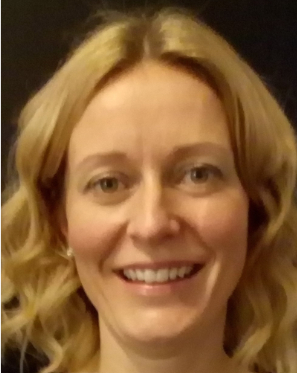 |
Dr Gemma Falconer, SAS Education Adviser, NHS Fife |
SAS Peer Support
"Peer support is the offer to a colleague, of the time and space to talk in confidence. It is a supportive and flexible process. It involves active listening, and with empathy, acknowledgement and understanding of their stressful experience. By facilitating reflection of their experience and giving them a sense of control, it encourages effective coping mechanisms to manage the difficult situation. It does not have to be a long conversation and there is no expectation that problems can or will be solved. Peer supporter training has equipped me with better listening skills and the confidence to provide support to colleagues in need. I have found the role as a SAS peer supporter to be immensely rewarding!"
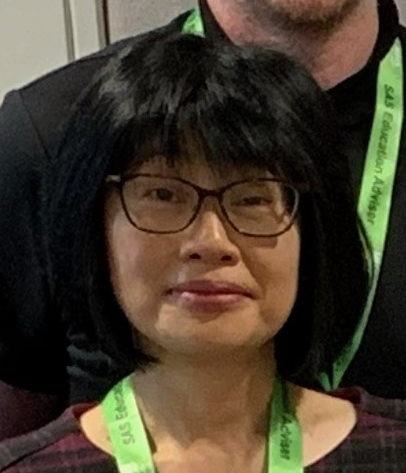 |
Dr Mun Woo, SAS Education Adviser, NHS Greater Glasgow & Clyde |
Friday 13th October 2023 - Equalities
The SAS Programme in Scotland recognises the significant challenges faced by many SAS, particularly for some International Medical Graduates.
Our SAS Programme SAS Wellbeing in the Workplace survey report highlighted significant issues of bullying and harassment of this workforce.
We deliver courses aiming to upskill and empower SAS doctors and dentists, as well as promoting the Workforce Bullying and Harassment Policy and Active Bystander training.
We work collaboratively with the boards to promote an inclusive culture which values the skilled Scottish SAS workforce.
We hope you have enjoyed interacting for SAS Week 2023; please speak to your Education Adviser and see how we can help you!
This page was last updated on: 13.10.2023 at 09.17